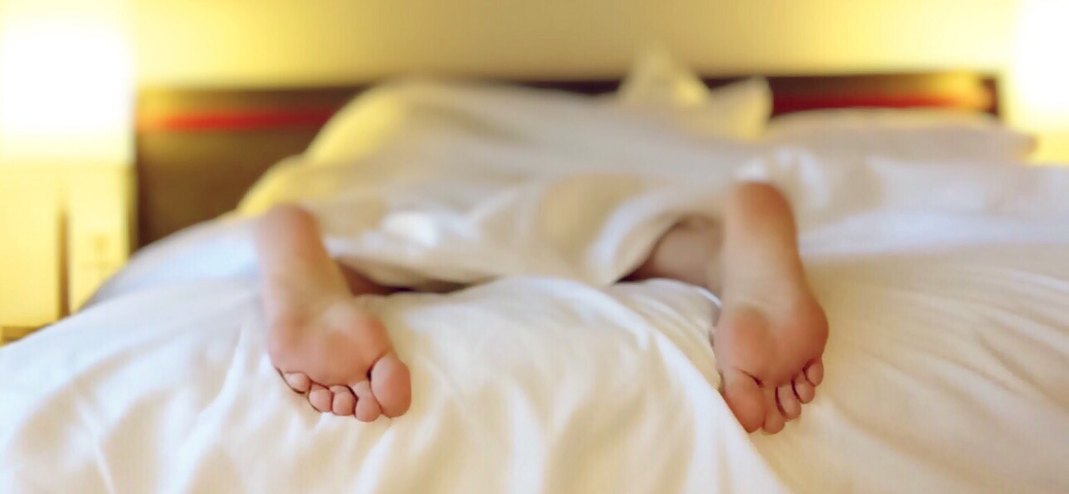Blog
8 Tips for Employee Sleep Health during COVID-19

Sleep is critical to physical health and an effective immune system. It also promotes emotional wellness and mental health, helping to reduce stress and anxiety.
Whether you had sleeping problems before COVID-19 or or just more recently, there are steps you can take to improve your sleep.
What Are the Challenges to Sleep During a Pandemic?
Millions of people suffered from insomnia before COVID, and unfortunately, the pandemic creates new challenges even for people who previously had no sleeping problems such as:
Disruption of Daily Life: social distancing, school closures, working-from-home. All bring profound changes to normal routines.
Worry: Economic concerns are affecting nearly everyone. As economic activity stalls and job losses mount, it’s normal to worry about income and savings. This often brings anxiety that disrupts sleep and keeps the body tossing and turning.
Depression and Isolation: Isolation may be even worse for people who have lost a loved one. Grief and depression can be increased by isolation, and both are known to cause sleeping problems.
Excess Screen Time: Whether it’s checking the news on your phone, joining a Zoom with family, binge-watching Netflix, or working extra hours staring at a computer while working-from-home, social distancing can mean a huge increase in screen time.
Stress-Related Fatigue: The chronic stress of living through a pandemic can lead to a host of physical symptoms, including persistent headaches, memory lapses, and digestive problems. Stress-related fatigue is another common side effect.
Why is sleep important during a Pandemic?
Sleep is a critical process, and is always important. During COVID-19, sleep becomes even more essential because of its health benefits.
Sleep:
• Empowers an effective immune system
• Heightens brain function
• Enhances mood
• Improves mental health
1. Set your schedule and routine:
Establishing a routine can create a sense of normality. It’s easier for your mind to acclimatise to a sleep schedule, which is why health experts recommend avoiding major variation in your daily sleep times.
Your daily sleep schedule should include:
Wake-Up Time: Set your alarm, avoid the snooze button, and have a fixed time to get every day started.
Wind-Down Time: Create time to relax and get ready for bed. It can involve things like light reading, stretching, and meditating.
Bedtime: Pick a consistent time to actually turn out the lights and try to fall asleep.
2. Reserve Your Bed For Sleep:
Sleep experts emphasize the importance of creating an association in your mind between your bed and sleep. This means that working-from-home shouldn’t be working-from-bed. It also means avoiding bringing a laptop into bed to watch a movie.
If you find that you’re having a hard time sleeping, don’t spend more than 20 minutes tossing and turning. Instead, get out of bed and do something relaxing in very low light, and then head back to bed to try to fall asleep.
3. See the Light:
Exposure to light plays a crucial role in helping our bodies regulate sleep. If you can, spend some time outside in natural light. Even if the sun isn’t shining brightly, it still has positive effects on circadian rhythm. Many people find outdoor time is most beneficial in the morning, and as an added bonus, it’s an opportunity to get fresh air.
As much as possible, open windows and blinds to let light into your home during the day. Be mindful of screen time. The blue light produced by electronic devices has been found to interfere with the body’s natural sleep-promoting processes. Avoid using these devices for an hour before bed. You can also use device settings or special apps that reduce or filter blue light.
4. Be Careful with Naps:
If you’re home all day, you may be tempted to take more naps. While a short power nap early in the afternoon can be useful to some people, it’s best to avoid long naps or naps later in the day that can hinder nighttime sleep.
5. Stay Active:
It’s easy to overlook exercise with everything happening in the world, but regular daily activity has numerous important benefits, including for sleep. If you can go for a walk while maintaining a safe distance from other people, that’s a great option.
6. Utilise Relaxation Techniques:
Finding ways to relax can be a potent tool in improving your sleep. Deep breathing, stretching, yoga, and mindfulness are just a few examples of relaxation techniques that you can build into your routine.
Read our blog post on 5 relaxation techniques to manage stress click here.
7. Avoid negative information overload:
Cutting down the time you spend on social media. Scheduling phone or video calls with friends and family and agreeing in advance to focus on topics other than the coronavirus.
8. Practice Kindness and Foster Connection:
It might not seem critical to your sleep, but kindness and connection can reduce stress and its harmful effects on mood and sleep.
« Back to All Posts
